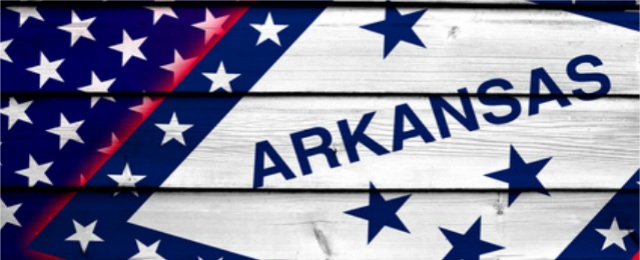Poll: Arkansas Voters Weigh In On Religious Freedom Restoration Act
by June 18, 2015 8:14 am 258 views

By a nearly two-to-one margin, Arkansas voters believe in the state’s so-called Religious Freedom Restoration Act (RFRA), which was passed by state lawmakers after a contentious and controversial national and state debate.
In the latest poll commissioned by Talk Business & Politics, Hendrix College and Impact Management Group, 1,183 likely Arkansas voters weighed in on this issue and public opinion of a host of state and national elected officials.
Voters were asked:
If a business provides wedding services, such as catering or flowers, should it be allowed to refuse those services to same-sex couples for religious reasons, or be required to provide those services as it would to all other customers?
54% Allowed to refuse services
29% Required to provide services
18% Don’t know
Dr. Jay Barth, professor of political science at Hendrix College, who helped construct and analyze the poll offered this analysis:
We were curious to know how much Arkansas voters differed on the issue of whether private businesses should be able to discriminate against same-sex couples in the providing of wedding services “such as catering or flowers.” Following the dust-up over religious freedom restoration acts in Indiana and Arkansas in April, in which business groups became deeply involved on the side of promoting equality, national surveys indicated a shift in the direction of having civil rights protections trump religious liberty.
A CNN/ORC International poll in mid-April, for instance, indicated that a healthy majority (57%) of Americans believe that businesses should be required to provide such services to same-sex couples while 41% believe businesses should be allowed to deny services for religious reasons. We employed the same wording to survey an Arkansas sample and, unsurprisingly, we found Arkansas voters decidedly more conservative on the topic. Specifically, 54% of Arkansas voters sided with businesses citing religiously-grounded objections to providing such services.
The crosstabs, however, show several interesting patterns as Arkansans vary significantly by age, party, and race. Unsurprisingly, younger Arkansans are significantly more likely to side with the notion that all businesses should offer their services to same-sex couples with a plurality of those under 30 (46%-33%) saying so; nearly six in ten of Arkansans 65 and over believe that religious objections should trump open access to public accommodations.
While about half of Democrats veer towards requiring companies to offer services, Republicans break towards religious objections by a resounding 83%-9% margin; independents split two-to-one in favor of allowing religious objections (54%-27%).
Finally, while white voters steer decidedly towards allowing religious objections (57%-29%), African-American voters are interestingly cross-pressured on the issue. The plurality of African-Americans — quite religious but also deeply concerned about discriminatory actions — answer “don’t know” when asked the question; those who do respond split 35%-24% towards allowing religious objections.
With the U.S. Supreme Court’s ruling on marriage equality imminent, the issue of religious freedom issues — dominant in Arkansas in the closing days of the most recent regular legislative session — will only continue to percolate in the months to come.
Clint Reed, partner with Impact Management Group and who also helped construct and analyze the poll, said:
These numbers are not surprising given Arkansas’ conservative electorate and the intensity of the gay-marriage debate in Arkansas.
This data is similar to the 2014 exit survey that showed 69% of Arkansas voters do not support legally recognizing same-sex marriage. For context, in 2004, 75% of Arkansas voters (over 750,000 in raw numbers) defined marriage as being being between one man and one woman.
While there is undoubtedly a push for ‘equality’ in Arkansas and across the nation, the Arkansas electorate [older, white, and rural] is reluctant – except for those under the age of 30 (46% support requiring services).
Talk Business & Politics Editor-in-Chief Roby Brock sat down with Reed and Barth to discuss the subject in the video below.
METHODOLOGY
The survey was conducted from June 8-11, 2015 among 1,183 likely Arkansas voters. Respondents were surveyed by automated phone calls (80%) and online polling (20%).
The poll has a margin of error of 1.84%.
All media outlets are welcome to reprint, reproduce, or rebroadcast information from this poll with proper attribution to Talk Business & Politics, Hendrix College and Impact Management Group.
For interviews, contact Talk Business & Politics Editor-in-Chief Roby Brock by email at [email protected], Dr. Jay Barth by email at [email protected], or Clint Reed at [email protected].
